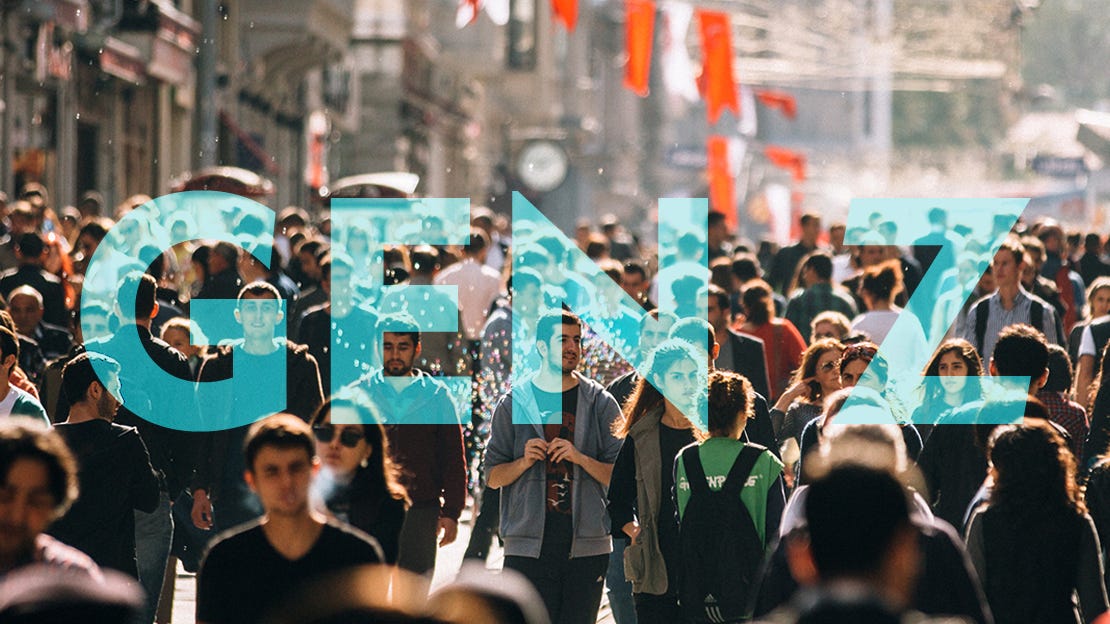Table of Contents
Jessica Colby
Liberty Itch
Gen Z is a generation (born between 1997 and 2012) that is plagued by problems and a lack of success. Some people even describe Gen Z as lazy, entitled and unmotivated.
In this article, I will help shed light on some of the issues that led to the current state of Gen Z from the perspective of someone who is a member (born in 2000).
Like all recent generations, Gen Z has experienced less freedom than the generation before us. There are freedoms our parents had that members of our generation struggle to conceptualise as it is simply much harder to understand an experience that you have never felt in person. Hence the absence of such freedoms is perceived as normal. Of course, there have been some gains in freedom in areas such as gay civil rights, but the losses outweigh the gains.

For Gen Z, helicopter parenting was the norm. Children were kept inside, not allowed to go out on their own, had their parents fight their battles, and were then given a screen to keep them entertained. This resulted in many members of Gen Z developing habits of excessive screen use and lower levels of in-person social skills. By the time their parents decided their children were old enough for more freedom and autonomy, the habits of excessive screen use and not going outside were developed. Gen Z was effectively institutionalised.
This makes it difficult to find what you really like since the red tape and education requirements create barriers to entry.
Institutionalisation is a phenomenon in which someone who has been deprived of freedom for a long time can lose the ability to be independent. When such an individual is offered freedom, they tend to reject it and prefer an authority figure make decisions for them and solve their problems. They don’t hate freedom itself; it is just the responsibility that comes with it which brings feelings of intense anxiety.
Not all parents adopted this parenting style, but its popularity resulted in it being imposed by society, and parents who resisted were shamed and some even arrested and had their children taken from them under the guise of ‘child neglect’ and ‘child endangerment’.
Many members of Gen Z do not remember a world without cancel culture. As a result, it is viewed as the norm. The prospect of your life being ruined over a minor or even a perceived mistake or accusation where the goalposts are constantly moving induces significant anxiety and fear amongst the ranks of Gen Z.
The cost of living is also a huge problem for Gen Z. Due to a variety of government policies such as printing money, which caused inflation, and government intervention in the market that inflated the value of houses owned by older generations, most members of Gen Z will never be able to own our own homes.
When you are a member of Gen Z, getting a job is far more difficult compared to previous generations thanks to red tape, increased education requirements mandated by the government, and poor economic conditions thanks to a variety of government policies.
This makes it difficult to find what you really like since the red tape and education requirements create barriers to entry. Unless I want to study again (and gain more student debt in the process), I can’t try something new. You also need experience to get an entry level job, and you can’t get experience because you can’t get that entry level job.
Then there is the doom and gloom. Gen Z was exposed to a lot of that growing up as part of an often politically biased education, especially in relation to the issue of climate change. This led to the notorious climate alarmism and crazy activism that many people associate with Gen Z.
Of course, there have been some gains in freedom in areas such as gay civil rights.
And of course the nail in the coffin – lockdowns. Lockdowns were an outright assault on Gen Z and our future. To Gen Z, lockdowns were like finding someone with a broken leg and then kicking their good leg.
Lockdowns exacerbated many of the problems that Gen Z was experiencing, limited our educational opportunities, and deprived us of opportunities that would allow us to be successful and grow and mature as people. We were at a point in our lives where we were meant to experience a lot of personal development, become independent and establish ourselves.
Like my Gen Z companions, I experienced serious personal harm due to lockdowns. All for a disease with an incredibly high survival rate and low risk of harm to most people, especially Gen Z. Of course, it is not socially acceptable for Gen Z to talk about being harmed by lockdowns so that anger is internalised and often redirected at other issues that aren’t the root of the problem.
Lockdowns remind me of Pavlov’s dogs in that they implanted an intense sense of learned helplessness in Gen Z, and like Pavlov’s dogs, when the harmful instrument was removed, the helplessness remained. Lockdowns caused much of Gen Z to simply give up.
To fix the problems of Gen Z would be incredibly difficult. Preventing a problem is far easier than fixing it. The best takeaway would be to understand what has caused the issues that Gen Z people experience and use that knowledge to avoid inflicting similar harm on future generations.
This article was originally published by Liberty Itch.









